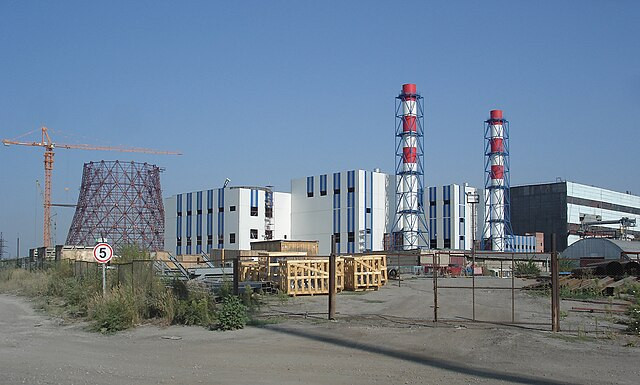Austria's energy landscape took a dramatic turn as Gazprom halted its natural gas deliveries to Austrian energy company OMV on Saturday, following a dispute over an arbitration award. This development, confirmed by Austrian officials, raises new questions about European energy security during the ongoing crisis sparked by Russia's war in Ukraine.
The decision by Gazprom to cut supplies follows OMV's announcement that it would cease payments for Russian gas deliveries to its Austrian subsidiary, citing a €230 million arbitration award over previous supply disruptions to its German arm. Austria's energy regulator, E-Control, reported that Gazprom's deliveries stopped at 6 a.m. local time. Despite this, the regulator assured that gas prices and supplies to Austrian customers remained stable.
Chancellor Karl Nehammer sought to reassure the public amid the potential supply crunch. "Austria has a secure supply of alternative fuel," he said on Friday. "No one will freeze this winter, no home will be cold." The announcement underscores Austria's ongoing efforts to reduce its reliance on Russian energy, a dependence that had reached 98% of its gas supply just last December.
OMV's dispute with Gazprom highlights broader tensions over Russian gas flows to Europe. Gazprom, which before the war in Ukraine was the continent's largest gas supplier, has seen its European market share dwindle as nations sought alternative sources. Austria, Slovakia, and Hungary remain among the few European nations still receiving gas via the Urengoy-Pomary-Uzhgorod pipeline through Ukraine. However, this route faces an uncertain future, with Ukraine signaling it will not extend the existing transit agreement beyond January 2025.
Gazprom continues to send gas to Europe through Ukraine at normal volumes, according to data from transmission operator Eustream. Still, the end of deliveries to OMV highlights the fragile state of Europe's energy arrangements. OMV, which typically accounts for around 40% of Russian gas flows via Ukraine-approximately 17 million cubic meters per day-has been a critical player in Austrian energy security.
Russia's energy leverage has long been a point of contention, and the cutoff underscores the complex geopolitical stakes. European governments have accused Moscow of using energy as a weapon, a claim Russia has denied, citing contractual and payment disputes. Gazprom's gas exports to Europe have dwindled significantly since 2022 when the Nord Stream pipeline was crippled by explosions in the Baltic Sea-a mystery that has only deepened tensions, with the U.S., Britain, and Ukraine exchanging blame. Moscow, for its part, denied involvement.
Chancellor Olaf Scholz's phone call with Russian President Vladimir Putin on Friday-their first exchange in nearly two years-further underscores the fraught state of European-Russian relations. According to the Kremlin, Putin assured Scholz that Russia remains committed to fulfilling its energy obligations. "Russia had always fulfilled its contractual obligations for energy supplies and was ready for mutually beneficial cooperation if the German side shows interest in this," the Kremlin stated.
The European energy crisis has led to significant shifts in supply chains, with Europe turning to Norway, the United States, and Qatar for alternative energy sources. Gazprom's once-dominant position in Europe has eroded, leaving Hungary and Slovakia as two of the last major recipients of Russian gas flows through pipelines largely bypassing Ukraine.




